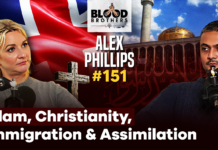Human rights group Cageprisoners has launched a website to detail the human misery behind “Schedule 7” stops at British airports and to campaign for reform of this terrorism law.
At an event in central London last night, attended by around 100 people, Cageprisoners launched Schedule7stories.com.
Schedule 7 was introduced as part of the 2000 Terrorism Act and gives the police the right to stop and search people at airports, to fingerprint them and take their DNA, and to hold them for up to 9 hours without legal representation.
More than 70,000 people were stopped and questioned under the Schedule 7 law last year and although most of them were white a hugely disproportionate number were ethnic minorities or Muslims. And the most intrusive and humiliating searches were conducted on those of “Muslim appearance.”
Schedule 7 victims
Asif Bhayat, who was detained at a Britsh airport on his way to Gaza last December, said: “It was clear that I was stopped because I looked like a Muslim with a beard. And just looking around me and observing the other people who were stopped it was obvious they were just doing their stops visually and not based on any intelligence gathering. You’d think that with all the money they spend on intelligence they could come up with a better strategy than to target a whole community.”
His friend Umar Patel, who was on the same trip to Gaza, said: “They were asking me if I read the Quran, if I prayed five times a day, if I prayed jummah, where I prayed jumma etc. I asked them ‘what will you do if I refuse to co-operate?’ They said to me ‘we will make a phone call and get some officers to raid your house with your wife and children in it, and they won’t be nice about it.’ I will take that to the grave with me.”
Subscribe to our newsletter and stay updated on the latest news and updates from around the Muslim world!
Speakers at the event told the audience that the law is morally and ethically bankrupt because it indiscriminately targets ethnic minorities and Muslims. Saghir Hussain, from Cageprisoners, said that politicians in parliament didn’t realize the impact that Schedule 7 is having on ordinary people who’ve done nothing wrong but who have been nevertheless subject to it.
Habeas corpus
Moazzam Begg, also from Cageprisoners and an ex Guantanamo Bay detainee, said that he is subject to Schedule 7 every time he leaves the country. “I now plan my foreign trips around the fact that I expect to be stopped. But I refuse to answer their questions. I just say ‘do your worst’ and eventually they let me go. It is humiliating. Officers will take you to a room, it could be for 30 minutes or it could be for several hours. They will take your luggage and passport away from you. Everyone else will be gone at this point, the place will be empty but you are still there.
“The lasting effects are that you dread coming to Britain as a British citizen because you know that you will be picked out of a queue and you fear it. Britain is the land of habeas corpus where you supposedly are innocent until proven guilty and can’t be detained without trial. Yet this still goes on.”
The government says that Schedule 7 is one of the powers in their arsenal to confront the terrorism threat to mainland Britain. They deny that it is targeted against any particular community but say they are reviewing possible improvements to it which would protect UK borders and respect human rights.




















